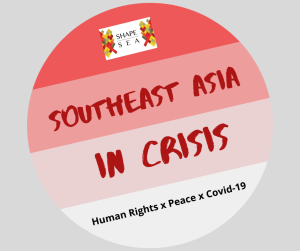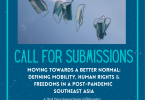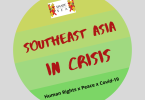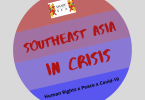Joanda Kevin Yoga AditamaBachelor of Political Science in International Relations of Universitas Muhammadiyah Yogyakarta & Local Engagement Staff of Jogja SDGs
 The Indonesian government had been prematurely easing restrictions on activities and movements to restart the economy, which gives a false sense of security to all. However, this decision has begun showing adverse effects, including increased health risks for low-income earners, particularly in relation to access to clean water and health protection in light of economic activities.Limited access to clean waterBefore the COVID-19 outbreak, Indonesia has already been facing problems in relation to limited access to clean water. Data from the Indonesian Central Bureau of Statistics in 2018 show that only 74 percent of Indonesians living in urban areas have adequate access to drinking water (Nasir S. , 2020). This has been the case for low-income people (‰¤Rp.1.8 million or USD 127.4 income per month) who live in high-density cities. Including Jakarta dwellers who could not access and afford clean water services because most of clean water service are still managed by private companies (Ambari, 2020).To mitigate the spread of the virus, the Indonesian appealed the public to regularly wash their hands with water for 20 seconds. This will reduce chances of getting infected by 40 percent t (Nasir S. , 2020). It also encouraged people to bathe and wash their clothes immediately after returning from outdoor activities.Nevertheless, such practices prove to be challenging low-income earners, who have limited access to clean water and hygienic products. (Firdaus, 2018). Some have to even spend Rp360.000,00 (USD 27) per month to buy water for daily needs consumption (Syakriah, 2020). Those who live by the riverbanks are forced to use unhygienic river water to fend for their needs. (Haira, 2019). Even worse, current data shows 70.53 percent have experienced a dramatic decrease of income due to economic restrictios caused by Covid-19 (Putranto, et al., 2020). This means that, at present and in the future, there will be a spike in the number of high risk individuals due to their inability to comply with guidelines for basic hygiene.More physical interaction may lead to health deteriorationAs part of enabling the reopening of the local economy, traditional markets have been allowed to open. However, they have been unable provide opportunities for vendors and shoppers to protect themselves from getting infected by Covid-19. Hand-washing facilities are scarce, and physical distancing is difficult to practice. In Jakarta, this led to the closure of 19 traditional markets after 51 vendors are tested positive for the virus (Nasir, 2020).Ride-hailing service drivers also have to deal with the similar problem. Even if the government allows them to carry passengers again, however with health protocols, direct interaction with the passenger is unavoidable (Silviana, 2020).Some local government units and the private sector have already stepped up to address various issues. For example, the local governments of Surabaya and Malang decided to enforce free of charge of water bill during the crisis for clean water service consumers. A response was also taken by Gojek, which just launched a health control mechanism at the end of June (Silviana, 2020). However, there is still much more to do to protect these people.There is still so much do be done to protect people from Covid-19. First, affordable, or even free, access to clean water has to be made available to all ”despite one ™s geographic location and economic status. It must also invest on hand-washing stations in public places such as traditional markets. It must also provide incentives for businesses who closely monitor the health status of their employees and patrons. Finally, the government must integrate public health in all strategic measures concerning social and economic activities throughout the country. As Indonesia ™s Covid-19 cases continue to rise, the government must remind itself of its primary duty to protect anyone from being the next probable prey of this deadly virus.References:Ambari, M. (2020, March 23). Kebutuhan Air Bersih di Tengah Pandemi COVID-19. Retrieved June 15, 2020, from Mongabay: https://www.mongabay.co.id/2020/03/23/kebutuhan-air-bersih-di-tengah-pandemi-covid-19/Firdaus, F. (2018, May 21). Jakarta’s Water Woes. Retrieved June 16, 2020, from New Internationalist: https://newint.org/features/2018/05/21/ending-jakartas-water-woesHaira, N. (2019, April 18). The Crisis of Clean Water in the Riverbank Residents . Retrieved June 16, 2020, from Project Child: https://projectchild.ngo/blog/2019/04/18/the-crisis-of-clean-water-in-the-riverbank-residents/Nasir, M. (2020, June 13). Pasar Jadi Kluster Baru Penularan Covid-19 di DKI Jakarta. Retrieved June 15, 2020, from Sindo News: https://infografis.sindonews.com/photo/572/pasar-jadi-kluster-baru-penularan-covid19-di-dki-jakarta-1591908760Nasir, S. (2020, April 11). Indonesia’s poor can’t even afford to wash hands. Retrieved June 16, 2020, from The Jakarta Post: https://www.thejakartapost.com/academia/2020/04/11/indonesias-poor-cant-even-afford-to-wash-hands.htmlPutranto, W. P., Riyadi, Larasaty, P., Kurniasih, A., Pratiwi, A. I., Saputri, V. G., et al. (2020). Hasil Survei Sosial Demografi Dampak COVID-19. Jakarta: Badan Pusat Statistik Republik Indonesia.Silviana, C. (2020, June 10). Indonesia allows Gojek and Grab to carry passengers again. Retrieved June 16, 2020, from KrASIA: https://kr-asia.com/indonesia-allows-gojek-and-grab-to-carry-passengers-againSyakriah, A. (2020, March 24). Hand washing to counter COVID-19 still a luxury for Indonesia ™s urban poor. Retrieved June 15, 2020, from The Jakarta Post: https://www.thejakartapost.com/news/2020/03/24/hand-washing-to-counter-covid-19-still-a-luxury-for-indonesias-urban-poor.html
The Indonesian government had been prematurely easing restrictions on activities and movements to restart the economy, which gives a false sense of security to all. However, this decision has begun showing adverse effects, including increased health risks for low-income earners, particularly in relation to access to clean water and health protection in light of economic activities.Limited access to clean waterBefore the COVID-19 outbreak, Indonesia has already been facing problems in relation to limited access to clean water. Data from the Indonesian Central Bureau of Statistics in 2018 show that only 74 percent of Indonesians living in urban areas have adequate access to drinking water (Nasir S. , 2020). This has been the case for low-income people (‰¤Rp.1.8 million or USD 127.4 income per month) who live in high-density cities. Including Jakarta dwellers who could not access and afford clean water services because most of clean water service are still managed by private companies (Ambari, 2020).To mitigate the spread of the virus, the Indonesian appealed the public to regularly wash their hands with water for 20 seconds. This will reduce chances of getting infected by 40 percent t (Nasir S. , 2020). It also encouraged people to bathe and wash their clothes immediately after returning from outdoor activities.Nevertheless, such practices prove to be challenging low-income earners, who have limited access to clean water and hygienic products. (Firdaus, 2018). Some have to even spend Rp360.000,00 (USD 27) per month to buy water for daily needs consumption (Syakriah, 2020). Those who live by the riverbanks are forced to use unhygienic river water to fend for their needs. (Haira, 2019). Even worse, current data shows 70.53 percent have experienced a dramatic decrease of income due to economic restrictios caused by Covid-19 (Putranto, et al., 2020). This means that, at present and in the future, there will be a spike in the number of high risk individuals due to their inability to comply with guidelines for basic hygiene.More physical interaction may lead to health deteriorationAs part of enabling the reopening of the local economy, traditional markets have been allowed to open. However, they have been unable provide opportunities for vendors and shoppers to protect themselves from getting infected by Covid-19. Hand-washing facilities are scarce, and physical distancing is difficult to practice. In Jakarta, this led to the closure of 19 traditional markets after 51 vendors are tested positive for the virus (Nasir, 2020).Ride-hailing service drivers also have to deal with the similar problem. Even if the government allows them to carry passengers again, however with health protocols, direct interaction with the passenger is unavoidable (Silviana, 2020).Some local government units and the private sector have already stepped up to address various issues. For example, the local governments of Surabaya and Malang decided to enforce free of charge of water bill during the crisis for clean water service consumers. A response was also taken by Gojek, which just launched a health control mechanism at the end of June (Silviana, 2020). However, there is still much more to do to protect these people.There is still so much do be done to protect people from Covid-19. First, affordable, or even free, access to clean water has to be made available to all ”despite one ™s geographic location and economic status. It must also invest on hand-washing stations in public places such as traditional markets. It must also provide incentives for businesses who closely monitor the health status of their employees and patrons. Finally, the government must integrate public health in all strategic measures concerning social and economic activities throughout the country. As Indonesia ™s Covid-19 cases continue to rise, the government must remind itself of its primary duty to protect anyone from being the next probable prey of this deadly virus.References:Ambari, M. (2020, March 23). Kebutuhan Air Bersih di Tengah Pandemi COVID-19. Retrieved June 15, 2020, from Mongabay: https://www.mongabay.co.id/2020/03/23/kebutuhan-air-bersih-di-tengah-pandemi-covid-19/Firdaus, F. (2018, May 21). Jakarta’s Water Woes. Retrieved June 16, 2020, from New Internationalist: https://newint.org/features/2018/05/21/ending-jakartas-water-woesHaira, N. (2019, April 18). The Crisis of Clean Water in the Riverbank Residents . Retrieved June 16, 2020, from Project Child: https://projectchild.ngo/blog/2019/04/18/the-crisis-of-clean-water-in-the-riverbank-residents/Nasir, M. (2020, June 13). Pasar Jadi Kluster Baru Penularan Covid-19 di DKI Jakarta. Retrieved June 15, 2020, from Sindo News: https://infografis.sindonews.com/photo/572/pasar-jadi-kluster-baru-penularan-covid19-di-dki-jakarta-1591908760Nasir, S. (2020, April 11). Indonesia’s poor can’t even afford to wash hands. Retrieved June 16, 2020, from The Jakarta Post: https://www.thejakartapost.com/academia/2020/04/11/indonesias-poor-cant-even-afford-to-wash-hands.htmlPutranto, W. P., Riyadi, Larasaty, P., Kurniasih, A., Pratiwi, A. I., Saputri, V. G., et al. (2020). Hasil Survei Sosial Demografi Dampak COVID-19. Jakarta: Badan Pusat Statistik Republik Indonesia.Silviana, C. (2020, June 10). Indonesia allows Gojek and Grab to carry passengers again. Retrieved June 16, 2020, from KrASIA: https://kr-asia.com/indonesia-allows-gojek-and-grab-to-carry-passengers-againSyakriah, A. (2020, March 24). Hand washing to counter COVID-19 still a luxury for Indonesia ™s urban poor. Retrieved June 15, 2020, from The Jakarta Post: https://www.thejakartapost.com/news/2020/03/24/hand-washing-to-counter-covid-19-still-a-luxury-for-indonesias-urban-poor.html





